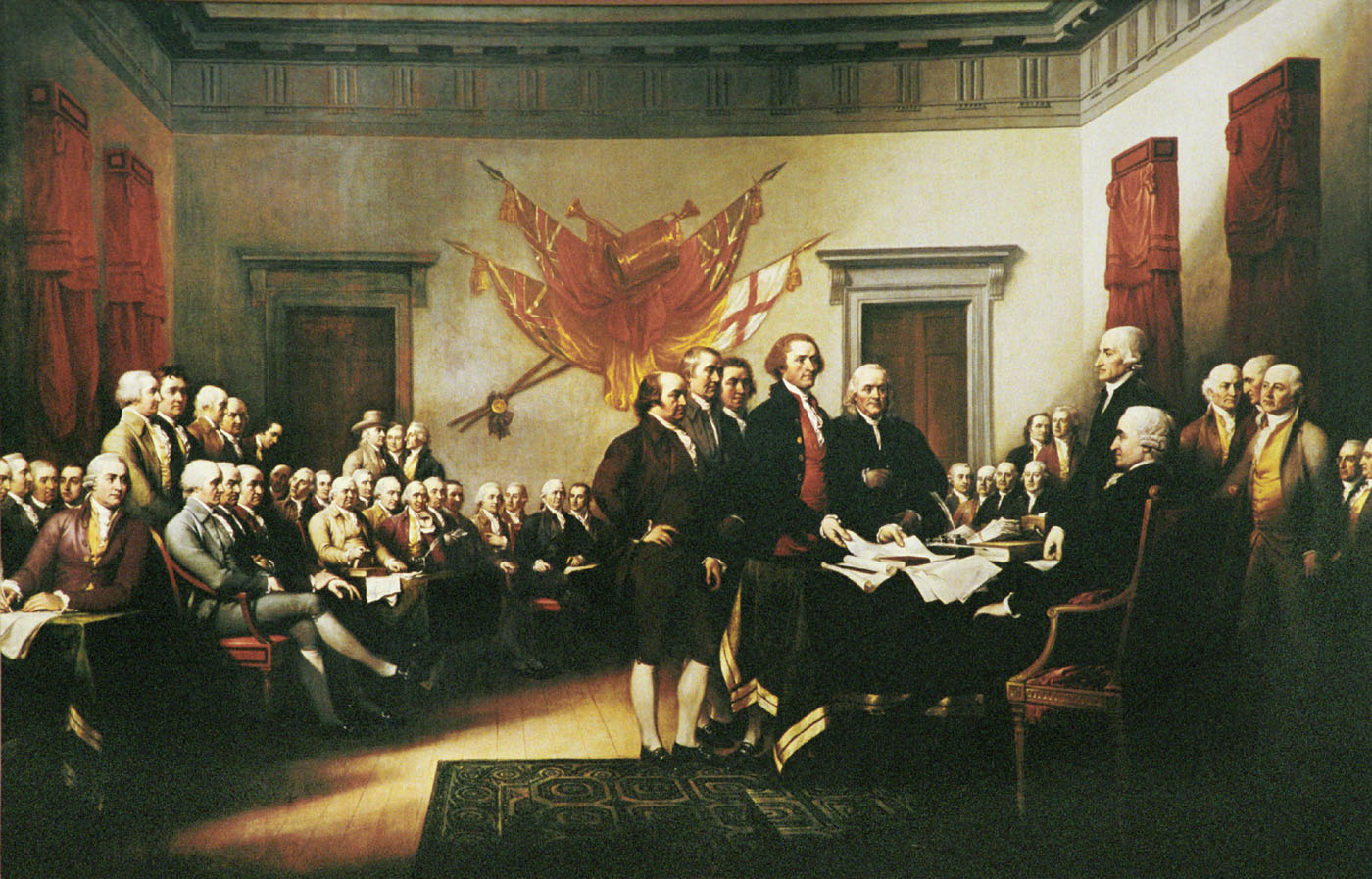
It has often been said that America was founded upon an idea. The country was not formed mainly for power or privilege but in adherence to a set of principles. Granted, these ideals have been, at various times in our history, less than ideally maintained. But the ideals remain. The idea persists.
If one sentence captures the quintessential idea of America, surely it the famous assertion contained in the Declaration of Independence: “We hold these truths to be self-evident, that all men are created equal, that they are endowed by their Creator with certain unalienable Rights, that among these are Life, Liberty, and the pursuit of Happiness.” Almost every word of this remarkable sentence, 238 years old today, is pregnant with meaning and strikingly relevant.
The United States of America began with the conviction that a nation should be founded upon truth. Not simply values or preferences, but upon truths. Self-evident truths that were true, are true, and will remain true no matter the time, the place, or the culture.
And central among these truths is the belief that all men are created equal. No one possesses more intrinsic worth for being born rich or poor, male or female, artisan or aristocracy. Of course, this truth, as much as any, unmasks our history of hypocrisy, for 3/5 of a person is an eternity from equality. But truth is still true. We all come into the world with the same rights and the same dignity-whether “gated community” in the world’s estimation or “trailer trash.”
These unalienable rights, we must note, are not granted by the Declaration of Independence. Our rights do not depend upon government for their existence. They are not owing to the largesse of the state or the beneficence of any institution. The rights of man are the gifts of God. The Creator endows; the state exists to protect. These unalienable rights can be suppressed or denied. But they cannot be annulled. We possess them-no matter what kings or parliaments say or presidents and congress decree-by virtue of being created in the image of our Creator.
And what are these rights? The Declaration mentions three: Life, Liberty, and the pursuit of Happiness. Obviously, these rights are not untethered from all other considerations. Life should not be lived in a way that means death for others. Our pursuit of happiness should not make others miserable. The Declaration is not calling for anarchy. It believes in government, good limited government rightly construed and properly constrained. But the rights enumerated here are still surprisingly radical. No matter how young, how old, how tiny, how in utero, or how ill, every person deserves a chance at life. Every one deserves a chance at self-governing. Everyone has the right to pursue his self-interest. There’s a reason the Founding Fathers did not wax eloquent about safety and security. It’s because they believed freedom and liberty to be better ideals, loftier goals, and more conducive to the common good.
I understand the dangers of an unthinking “God and country” mentality, let alone a gospel-less civil religion. But I also think love of country–like love of family or love of work–is a proximate good. Patriotism is not beneath the Christian, even for citizens of a superpower.
So on this Independence Day I’m thankful most of all for the cross of Christ and the freedom we have from the world, the flesh, and the devil. But I’m also thankful for the United States. I’m thankful for the big drops of biblical truth which seeped into the blood stream of Thomas Jefferson and shaped our Founding Fathers. I’m thankful for our imperfect ideals. I’m thankful for God-given rights and hard-fought liberty. I’m thankful I can call myself an American.



